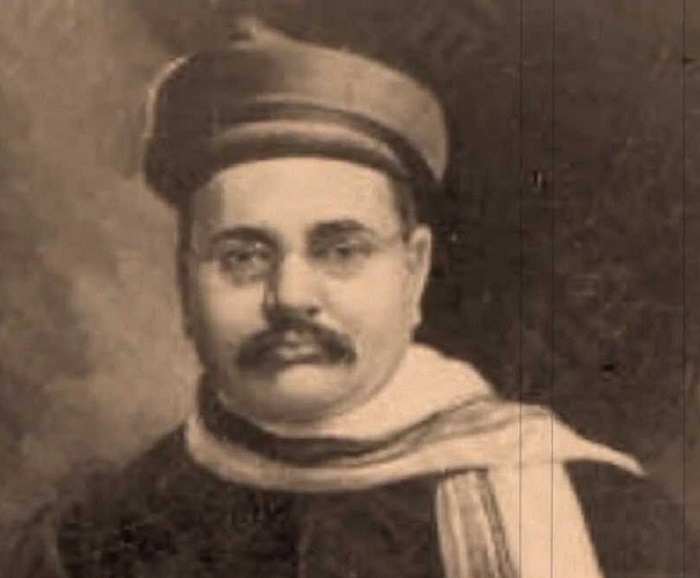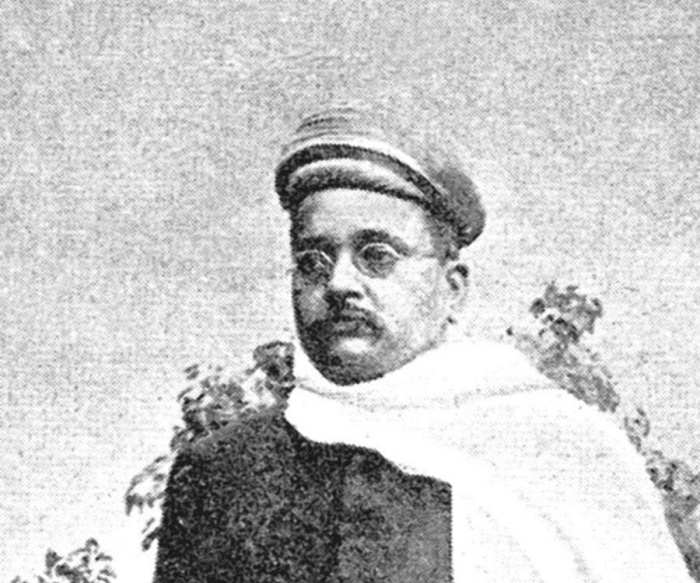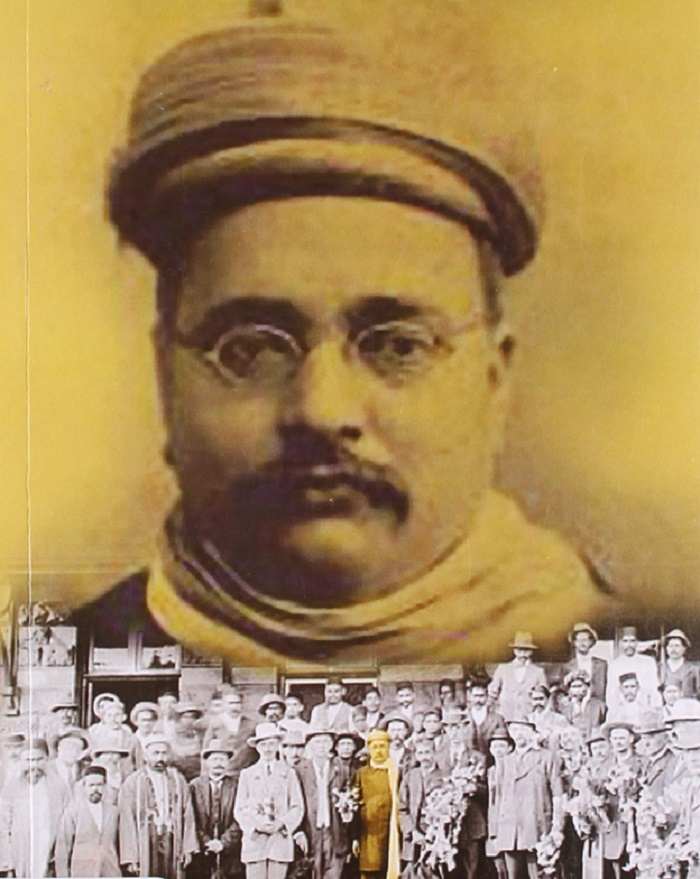Date of Birth: May 9, 1866
Place of Birth: Kothluk, Ratnagiri, Bombay Presidency (now Maharashtra)
Parents: Krishna Rao Gokhale (father) and Valubai (mother)
Spouse: Savitribai (1870-1877) and Second wife (1877-1900)
Children: Kashibai and Godubai
Education: Rajaram High School, Kolhapur; Elphinstone College, Bombay
Association: Indian National Congress; Servants of India Society
Movement: Indian Freedom struggle
Political Ideology: Liberalism; Socialism; Moderate; Right-winged
Religious Views: Hinduism
Passed Away: February 19, 1915

Gopal Krishna Gokhale was one of the forerunners of the Indian Independence Movement. Gokhale was a senior leader of the Indian National Congress. He was one of the most learned men in the country during his time, a leader of socio-political reforms and among the most influential leaders of the Indian National Congress. Being one of the first generation of Indians to receive college education, Gokhale was respected widely in the Indian intellectual community. He was founder of the Servants of India Society which was dedicated to inspire nationalistic feelings among his fellow countrymen. During his political career, Gokhale campaigned for self-rule and also stressed the need of social reform. Within the Congress, he led the moderate faction of the party that was in favour of reforms by working and co-operating with existing government institutions and machinery.
Childhood & Early Life
Gopal Krishna Gokhale was born in Kothluk in Ratnagiri District, Maharastra to parents Krishna Rao and Valubai. His father was a clerk who had to give up farming due to poor soil conditions. Gokhale received his early education at Rajaram High School in Kothapur and later, in 1884 moved to Bombay to receive higher education.
Gokhale was reportedly one of the first Indians to complete graduation. In 1884, after his graduation in arts at the Elphinstone College, Bombay, Gokhale moved to Poona to take up a teaching job at a school. He later joined as professor of history and political economy at the Fergusson College, Poona. He remained on the staff, finally as principal, until 1902.
He met his mentor Mahadev Govind Ranade, a renowned scholar and jurist, in Poona. He started working with Ranade in the Poona Sarvajanik Sabha of which he later became the Secretary. He regarded Mahadev Govinda Ranade as his "Guru". Ranade helped Gokhale in establishing the "Servants of India Society" in 1905. The main objective of this society was to train Indians to raise their voice against social evils and and serve their country. Gokhale also worked with Ranade in a quarterly Journal, called "Sarvajanik". The Journal wrote about the public questions of the day in a frank and fearless manner.
He married Savitribai in 1880. Savitribai was frail and suffered from congenital ailment. Gokhale remarried in 1887. His second wife died in 1900 and Gokhale did not remarry after that. He had two daughters with his second wife, Kashibai and Godubai.

Political Career
Association with Indian National Congress
Under the mentorship of Ranade, Gopal Krishna Gokhale became a member of Indian National Congress in 1889. He got actively involved with the Indian National Congress, and was the joint secretary for some years and in 1905, he was elected the president at the Benares session of the Congress. The higher education made Gokhale understand the importance of liberty, democracy and parliamentary system of the government.
Gokhale was the secretary of the "Reception Committee" of the 1895 Poona session of the Indian National Congress. From this session, Gokhale became a prominent face of the Indian National Congress. For a while, Gokhale was a member of the Bombay Legislative Council where he spoke strongly against the then Government. In 1901, he was initiated into the Imperial Council of the Governor General of India. In the sessions he rallied for the salt taxes and taxes on cotton goods to be reduced, he sought free primary education for Indians as well as absorption of more numbers of Indian in the Civil Services.
Gokhale dedicated his life to the advancement of the nation's welfare. In 1905, Gokhale was sent by the Congress on a special mission to England to explain India's constitutional demands among the British leaders. He spoke about the prejudiced and unfair treatment of Indian people by the British Government.
Gokhale was instrumental in the formation of the Minto-Morley Reforms of 1909, which was tabled and eventually enacted into law. But unfortunately, it did not give the people a democratic system. However, Gokhale's efforts were clearly not in vain. Indians now had access to seats of the highest authority within the government, and their voices were more audible in matters of public interest.

Rivalry with Radical faction of the Congress
When Gokhale joined the Indian National Congress, several of India’s pioneer leaders were on the rise including Bal Gangadhar Tilak, Lala Lajpat Rai and Annie Besant. In course of time, there arose an irreconcilable rift among these regarding ideologies and principles. Gokhale was a progressive socialist while Tilak was quite stoically traditional when it came to cultural customs. The Age of Consent Bill introduced by the British became the first point of difference between Tilak and Gokhale. While Gokhale appreciated the British endeavour of social reform against child marriage, Tilak highly opposed this bill which he considered interference and insult by the British on Hindu traditions. The two leaders came out on opposite sides when it came to decide the best course of action to attain freedom for India. A moderate, Gokhale desired independence through constitutional agitations while Tilak believed in a more aggressive approach. When Gokhale became President of Indian National Congress in 1906, the rivalry reached its peak, and the party split into two clear factions. The moderate faction was led by Gokhale while Tilak led the aggressive nationalist faction.
Servants of India Society
Gokhale was a firm believer in the power of education and its potential to open one’s horizons. He wanted Indians to receive proper education and become aware of their civic and political duties towards the country. With this objective he established the Servants of India Society. Through the society’s activities, Gokhale tried to educate common people about the political scenario of the time and sought to instil a sense of nationalism. The society built schools, free night classes and even a mobile library for the aforesaid purposes.

Image Credit: amazon.com
Role as a Mentor
Gokhale first met Gandhi in 1896 and the two of them spent almost a month in Calcutta in 1901. During their discussions, Gokhale explained to him the issues plighting the common people in India and urged Gandhi to return to his country to join the efforts of the Congress. He helped Gandhi structure the Natal Indentured Labour Bill in 1910 and raised money for Gandhi’s efforts in South Africa. Gokhale, during his visit to South Africa in 1912, met Gandhi and held meetings with African leaders. Gandhi looked up to Gokhale as his mentor and guide in politics and carried forward his vision of constitutional agitation as a means to achieve freedom. However, Gandhi did not support Gokhale’s view of working with the established institutions of the British Government to achieve social reforms and ultimately freedom.
Gokhale also exerted his influence on Muhammad Ali Jinnah, the Muslim League leader who later became the founder of Pakistan. Jinnah supposedly aspired to become the "Muslim Gokhale" and was considered the ambassador of Hindu Muslim Unity against the British Raj.
Death
Through years of hard work and devotion, Gopal Krishna Gokhale did immense service to the cause of India. But, unfortunately, excessive exertion and the resulting exhaustion only aggravated his diabetes and cardiac asthma. The end came peacefully, and the great leader passed away on February 19, 1915.
Legacy
Gokhale’s views were shaped by his education, extensive reading and inspiration from his mentor Govind Ranade. Throughout his career, he addressed issues like social, economic and political reforms balancing them with the rich cultural heritage of the country. He deeply admired the values of the British thinkers and was initially eager to work with the government on several social issues. He was an advocate of liberalism, reason free of passion and the importance of education in enriching minds. Gokhale’s idea of free and compulsory education was proposed through his Elementary Education Bill in 1910, which came to evolve into the Right to Education Act after a century. His point of view clearly demarcated between spirituality and religiosity and to him nationalism was his religion. Gokhale never sought personal glory or power; rather he dedicated his life towards advancing his ideals towards a national platform. He became an inspiration to many leaders of the Indian National Movement including Mahatma Gandhi.



